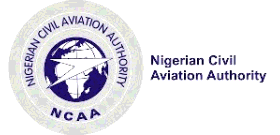 Despite Recertification, Lagos, Abuja Airports Not 100% Safety Compliant — NCAA
Despite Recertification, Lagos, Abuja Airports Not 100% Safety Compliant — NCAA
The Nigeria Civil Aviation Authority (NCAA) has said that the Murtala Muhammed International Airport (MMIA), Lagos and Nnamdi Azikiwe International Airport (NAIA), Abuja are not 100 per cent compliant with safety standards despite the presentation of their recertifications on Friday.
The two airports were recertified four years after the expiration of the former certifications. This is the second time in seven years that the apex regulatory body was certifying the two airports.
NCAA had first certified the two airports in November 2017, which elapsed in the late 2020, but since then, the authority had failed to recertify the two airports, citing non-compliance to standards. The recertification certificates for the two airports were given to Mrs. Olubunmi Kuku, the Managing Director of the Federal Airports of Nigeria (FAAN) on Friday in Abuja by Capt. Chris Najomo, the Acting Director-General Civil Aviation (ADGCA).
Certification of international airports as required by the International Civil Aviation Organisation (ICAO) Annex 14 and Part 12 of the Nigerian Civil Aviation regulations is a global strategy to foster standards and uniformity in the sector.
It also strengthens the competitiveness of the airport and opens it to external funding. Najomo commenting on the recertification of the two airports, said that it marked an important milestone in the country’s journey towards achieving excellence in aviation safety and security.
He also said that it was an attestation to the leadership of Mr. Festus Keyamo, the Minister of Aviation and Aerospace Development, Festus Keyamo in particular, and President Bola Tinubu through his Renewed Hope Agenda in general.
Najomo, however, said that the presentation of these certificates was not an indication that the airports were 100 per cent compliant with safety standards.
He said it was a testament of their compliance with the minimum certification and operating requirements based on risk assessment and presentation of an acceptable Corrective Action Plan (CAP) for continuous implementation by the aerodrome operator.
He noted that the observed non-compliances had resulted in applicable restrictions and exemptions to reflect the true status of the aerodromes.
He added: “In the meantime, the implementation of these CAPs will be monitored by our safety inspectors through post-certification surveillance activities. Therefore, we are not to rest on our oars, but rather, leave our sleeves up and keep working.
“In doing so, I appeal for continuous maintenance of high safety standards that prioritise the safety and comfort of passengers, airport users, staff and the public. I have no doubt that FAAN will align itself with these ideals. This will further ensure that subsequent certification renewal processes are seamless in keeping with my mantra of ease-of-doing-business without compromise of standards.”
He restated the commitment of NCAA to ensure the airports met the highest safety and security standards, assuring that it would continue to work closely with the airport operators to ensure consistent compliance with international best practices.
Also, Najomo explained that the second phase of the exercise would be to implement the remaining three international airports in line with the regulations and international protocols.
The other three airports are Port Harcourt International Airport (PHIA), Mallam Aminu Kano International Airport (MAKIA), Kano and Akanu Ibiam International Airport (AIIA), Enugu.
In her comment, Kuku explained that the event was not just a reflection of the agency’s achievements, but also a testament to the dedication and hard work of every individual involved in the process.
She also lauded the efforts of airport managers and their teams for the success recorded, stressing that their commitment to excellence made the feat possible.
She regretted that the aerodrome certificates had not been active since 2020, noting that achieving the recertification was not just remarkable, but a vital step in enhancing the aviation infrastructure, which had long been overdue.
She added: “This accomplishment is a clear indication of our commitment to providing a safe and efficient air travel experience for all.
“The recertification process is not merely a formality; it is anchored in the principles established by the ICAO. As you may be aware, the ICAO Annexes, particularly Annex 14, which pertains to Aerodromes, provide the framework for ensuring that our airports are safe, efficient, and capable of meeting the demands of modern aviation.
“This process involves rigorous assessments of our facilities, including runway conditions and airfield lighting systems, to ensure compliance with these global standards.”
She further mentioned the ongoing assessments and improvements regarding the two primary runways in Lagos 18R.
She maintained that the runways were crucial for the agency’s operations, while their conditions directly influenced the efficiency and safety of air traffic.
Kuku added that the agency was also focusing its attention on the taxiways A, B, and C, which she said were vital connectors that facilitate the smooth movement of aircraft on the ground.
